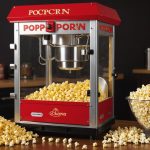Importance of Nutrient Tracking
Nutrient tracking offers significant health improvement benefits by allowing individuals to monitor their daily intake. This process leads to increased dietary awareness and promotes healthier, more mindful eating habits. When people track their nutrients, they can make informed decisions about their diet, helping to maintain a balanced intake that meets their nutritional needs.
Furthermore, nutrient tracking helps individuals recognize patterns in their eating habits. By assessing the presence or absence of certain nutrients, they can adjust their diets to ensure they are meeting their health goals. This ongoing reflection empowers better dietary choices that can result in improved energy levels, weight management, and overall well-being.
Topic to read : Which herbs and spices can elevate the flavor of healthy dishes in my UK kitchen?
Over the long term, tracking nutrients fosters sustainable health practices. It helps individuals connect their daily choices with their long-term health aspirations, providing motivation to adhere to a nutritious diet. The investment in understanding one’s dietary habits can prevent chronic diseases and promote longevity. By making nutrient tracking a staple in daily life, individuals lay the groundwork for lasting health improvements that echo into the future.
How to Choose a Smart Nutrient Tracker
Choosing the right nutrient tracker can transform dietary habits by offering actionable insights into daily nutrient intake. The best nutrient tracking apps provide user-friendly designs that streamline this process, allowing both new and seasoned users to engage comfortably. Prioritizing certain features can optimise the tracking experience and enhance adherence to health goals.
Also to read : Revamp Your Nutrition: Discover How a Yogurt Maker Revolutionizes Calorie-Counting Diets
Key Features to Consider
When selecting a nutrient tracker, consider features such as barcode scanning and large food databases. These enable quick logging of meals with precision, a boon for those with hectic schedules.
Compatibility with Dietary Needs
Ensure the tracker can accommodate specific dietary restrictions or preferences like gluten-free or plant-based diets. This compatibility can enhance dietary awareness and assist users in staying aligned with their health objectives. Customisation options further improve the experience by allowing adjustments based on unique health goals.
User Experience and Interface
A tracker with an intuitive interface boosts usability, making it easier to maintain consistent tracking. Look for apps offering notifications and analytical insights, which support users in making informed, mindful decisions about their food consumption and nutritional intake, paving the way for sustainable health improvement.
Strategies for Stocking a Healthy Fridge
A well-stocked fridge plays a crucial role in maintaining a nutritious diet. By focusing on healthy fridge stocking, individuals can ensure they have easy access to nutrient-dense foods that support their health goals.
Identifying Nutrient-Dense Foods
Start by prioritising foods rich in essential nutrients like vitamins, minerals, and fiber. Fresh fruits and vegetables, lean proteins, whole grains, and low-fat dairy products are excellent staples. These items provide the building blocks for balanced meals, enhancing nutrient tracking benefits.
Tips for Organising and Categorising
Organising your fridge can encourage healthier choices. Store pre-cut vegetables in clear containers at eye level to promote quick, nutritious snacking. Group similar items together, such as dairy with dairy, to simplify meal preparation, ensuring you make the best of available healthy options.
Importance of Meal Planning
Incorporating meal planning into your routine aids in consistently making informed food choices. This strategy not only reduces food waste but also aligns with dietary transformation goals. By planning meals around nutrient-dense options, individuals can efficiently use their stocked ingredients while maintaining focus on health improvement.
Actionable Steps for Transforming Your Diet
Transforming your diet can be a powerful journey towards healthier eating habits. To begin, set realistic health goals that are achievable and meaningful to you. Tracking progress using a nutrient tracker provides feedback, fostering motivation and encouraging adherence to new habits. It’s crucial to understand that gradual changes tend to be more sustainable than immediate overhauls. Implementing small, incremental changes to your diet allows your body to adapt and lowers the likelihood of reverting to old habits.
Incorporating variety and flexibility into your meals ensures a balanced and diverse nutrient intake. Try experimenting with different foods and flavours to keep your diet exciting and prevent monotony. Actionable health tips such as meal prepping, stocking your fridge with nutrient-dense foods, and planning balanced meals can serve as practical steps to support your dietary transformation.
Remember, dietary transformation isn’t a strict or restrictive practice, but rather an empowering approach that promotes lifelong healthy eating habits. Embrace the journey with a positive mindset, and allow yourself to enjoy the process of exploring new foods and refining your nutritional choices.
User Testimonials and Success Stories
Real-life experiences with nutrient trackers reveal compelling user experiences that highlight remarkable health transformations. Enthusiasts often report significant improvement in their eating habits, attributing success to enhanced dietary insight and mindful decision-making. These testimonials showcase how tracking becomes a catalyst for personal accountability, effectively fostering healthy nutritional changes.
For many, the user-friendly features of these trackers provide not just convenience but motivation. The ease of use—via intuitive interfaces or engaging reminders—keeps users committed to their goals. When integrated into daily routines, these features empower individuals to continually evaluate and adjust their diets, responding dynamically to their progress.
Successful transformations frequently revolve around setting clear health targets and harnessing tracker data to track advancements. Users find motivation in visible progress markers, which build confidence and fuel perseverance. Stories of triumph over dietary challenges inspire broader audiences, demonstrating attainable goal achievement.
Moreover, testimonials serve as powerful reminders of the potential within everyone to enact change. By learning from the journey of others who have effectively utilised nutrient trackers, new users are encouraged to embark on their own paths toward sustained health improvement.
Visual Tools and Resources for Nutrient Tracking
Exploring effective visual tracking tools can enhance dietary transformations by offering clear insights into nutrient intake. These resources serve as practical aids for individuals seeking to optimise their health routines.
Infographics for Healthy Eating
Infographics provide simplified visual representations of nutritional information, making it easier to grasp complex concepts. They can illustrate the benefits of specific foods or offer guidelines for balanced meals, promoting dietary awareness with engaging visuals. This tool is particularly beneficial for visual learners who prefer to see information at a glance.
Apps and Websites for Goal Tracking
Incorporating technology through apps and websites can streamline nutrient tracking. These platforms often include dietary calculators that offer detailed insights into daily consumption patterns. By setting and monitoring goals with these tools, users can foster health improvement. Many of these apps also offer community support, where users can share tips and encouragement.
Printable Meal Planning Resources
For those preferring offline methods, printable meal planning resources offer a tangible way to plan and track meals. These resources often include templates to organise shopping lists and monitor food intake, aligning with long-term nutrient tracking benefits. This approach helps individuals maintain focus and organisation in their dietary habits.











